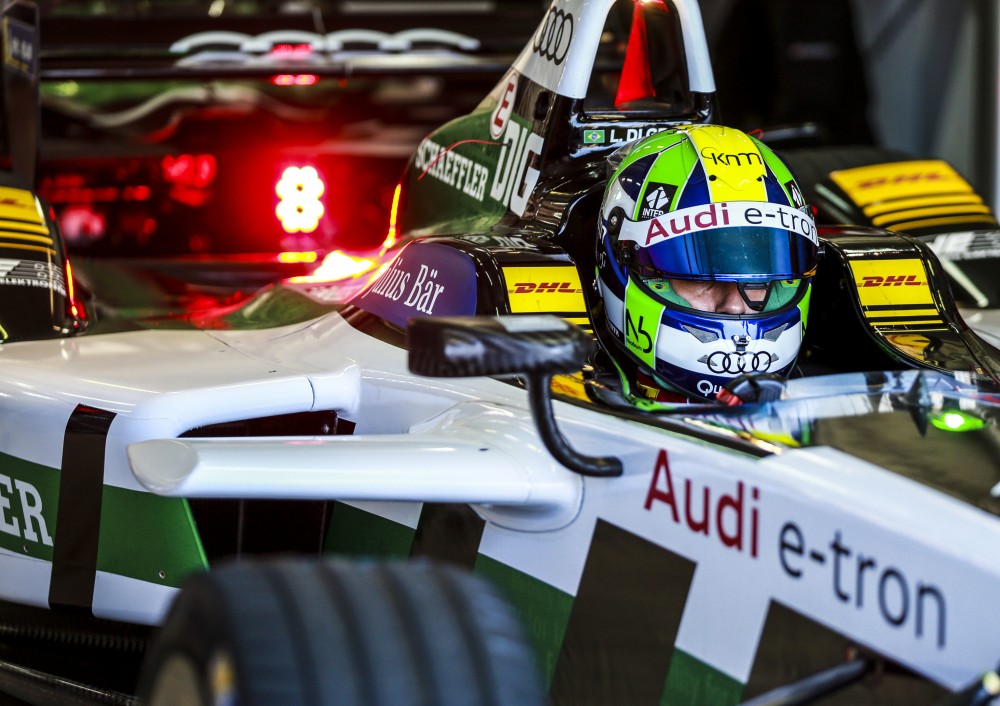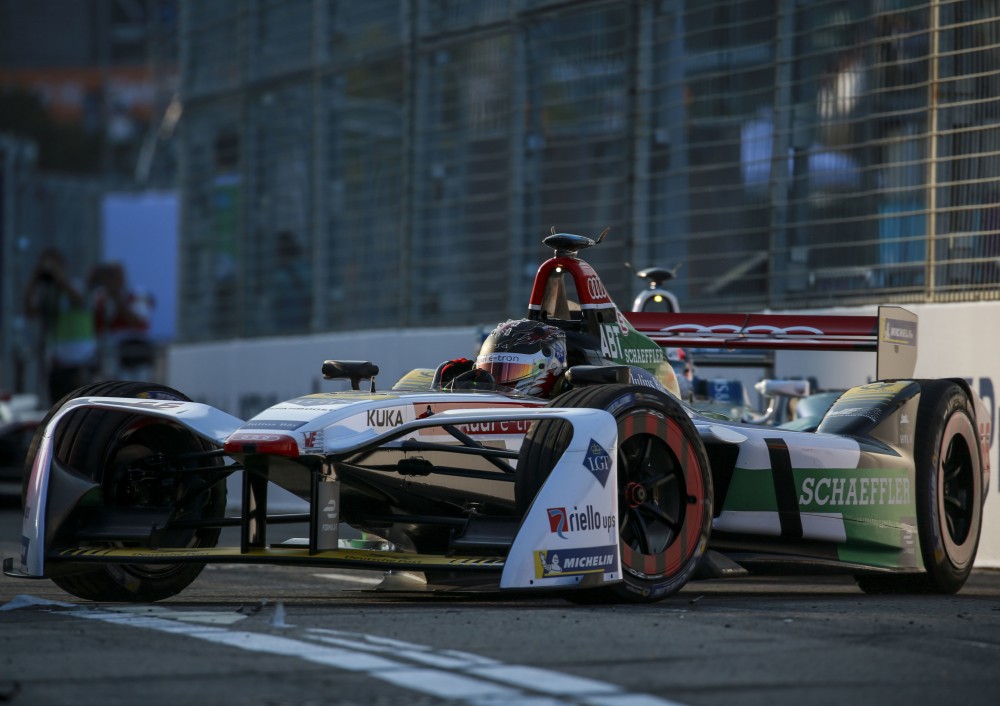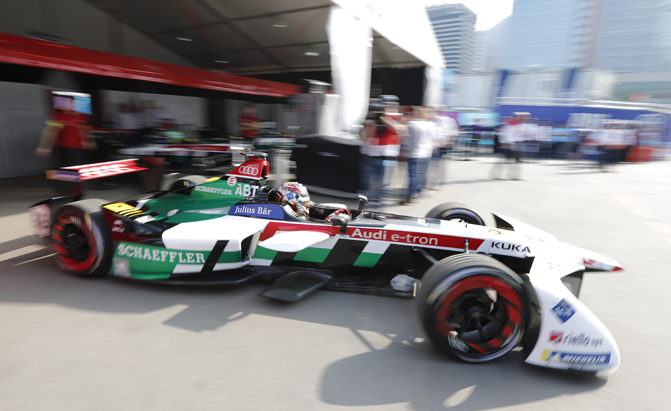Car racing always has, and should always have, innovation at its heart.
Without it, motorsport lacks a reason for being. Without some level of engineering transfer between race cars and road cars, any series will eventually struggle to maintain relevance. When that transfer is there, though, investment and attention will inevitably follow.
That’s why this season’s opening race in Hong Kong may be looked back upon as a major turning point for Formula E: it’s where Audi’s factory team showed up for the first time.
Manufacturer involvement in Formula E is not new. The technical regulations allowed for fully open powertrain development all the way back in season two, including the electric motor, gearbox, control software, and much of the rear suspension. Renault has been in the game since the very beginning – though its efforts will be rebadged with alliance partner Nissan from next year – and Jaguar launched a factory effort with much fanfare last October.
ALSO SEE: Audi Introduces its First Ever Formula E Car
It was in this year’s opening race in Hong Kong, though, that the ABT Schaeffler team made the transition from being a privateer effort – that is to say, an independent team carrying an Audi sticker and some extra funding – to a factory team backed full-time by Audi Sport’s engineering expertise.

Why is this important? It’s the culmination of Audi transferring all of its development efforts away from the R18 that won the 24 Hours of Le Mans four times, three in its final configuration as a diesel hybrid, and toward fully electric performance powertrains.
Sure, it can be argued that the LMP1 program was doomed anyway due to being associated with the Dieselgate scandal. But Audi has never been a manufacturer that takes any motorsport commitment lightly. Rather than stay at Le Mans and in the World Endurance Championship by reverting its program there to a gasoline powertrain, the company has fully turned its attention toward the EV proving ground that Formula E offers.
Given that Audi has scored 13 overall wins at Le Mans since the turn of the century, more than any other manufacturer by a country mile, this shift speaks volumes.
“Manufacturers are coming into Formula E because it is the right space to be involved,” says Allan McNish, who was behind the wheel for two of those Le Mans wins for Audi, and an earlier one for Porsche, before his post-retirement transition into Team Principal for Audi Sport ABT Schaeffler Racing.
ALSO SEE: Audi’s Self-Driving Concept Gets Almost 500 Miles on a Single Charge
“We’re the first German one to jump in because we feel for electrification, for what we’re doing, for e-tron coming next year, it’s the right thing to do. And to some extent, it’s a leap of faith as well.”
Today, this means that all of the engineering efforts that went into the R18, and the Le Mans winners that came before it, are being pumped straight into Formula E.

“The electrical drivetrain (and) the philosophies fundamentally are the same as what they were for the LMP1 car,” McNish says. “They’re put through the same processes and, to be honest, it’s the same people doing it.”
This influx of historical data and R&D investment has reaped results quickly. For example, the new powertrain Audi produced in-house for this season, right out of the gate, reduces the number of gears in the box from three to one.
“It’s for efficiency predominantly, more than just power,” McNish explains. “With developing the electric motor, then we were able to go to the single gear, and the single gear is better for efficiency. But you need to have a good motor to be able to pull it.
“If you’ve got not a very powerful engine, you need gears to give it its rev range. It’s a similar philosophy to that.”
The key takeaway, though, is that Audi’s shift is predictive of a trend: that major car manufacturers are beginning to see Formula E as a technical proving ground that cannot be ignored.

“The ultimate point (is) to make it road-worthy and road-relevant,” says McNish. “For Audi, we’ve always been involved in motorsport programs that allowed us to do that – rallying with Quattro with an element of flexibility in regulations that we could put our thumbprint, our DNA on it. With the LMP program (we had) TFSI, TDI, laser lights, e-tron … all of these things had to be road-relevant and have to be road-relevant, which is one of the reasons that we’ve always stayed out of Formula One: because it was a box, and a narrow box. That narrow box didn’t allow that creativity, and creativity is what we’re about.”
Soon, Audi and Renault-Nissan won’t be alone in Formula E: BMW will enter the fray next year for season 5, and Mercedes and Porsche have announced an intent to join for season 6. The extra time and experience that the earlier adopters will have – despite a new car arriving next year with updated bodywork and a spec battery that can last the duration of a race without car changes – will give newcomers a higher mountain to climb.
McNish says that the groundwork being laid by transitioning to a factory team now is setting Audi up for success down the road.
“What we need to do is build (the team) up for the future when the competition comes from BMW next year, Mercedes, Porsche, and everybody else.
“It’s going to be a hell of a battlefield.”



Leave a Reply